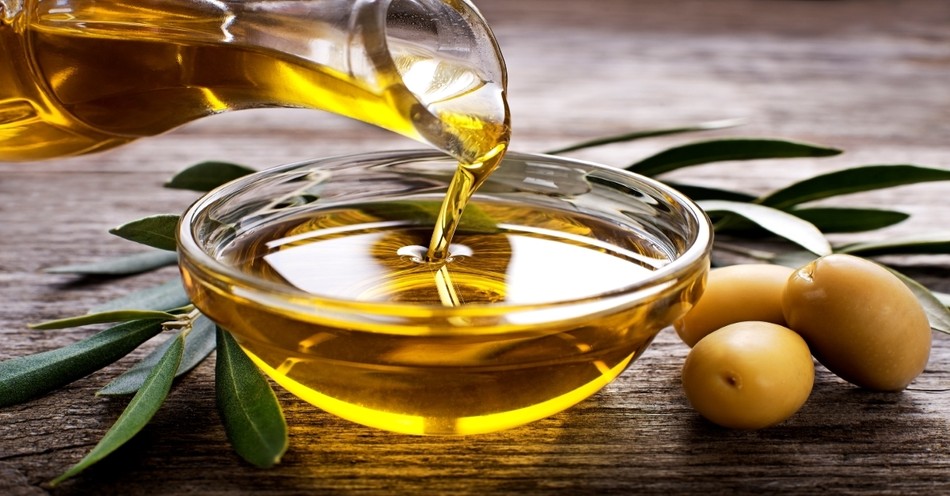What Does It Mean to Be Anointed?
The generic definition of anointing is “to smear or rub with oil, typically as part of a religious ceremony.” In Christian tradition, anointing is an important practice to heal the sick or designate a ceremonial meaning.
As defined in Smith’s Bible Dictionary:
Anointing: in Holy Scripture, is either 1. Material, with oil, or 2. Spiritual, with the Holy Spirit.
What Were the Material Purposes for Anointing with Oil?
1. Ordinary
Anointing the body or head with oil was a common practice with the Jews, as with other Oriental nations. (Deuteronomy 28:40; Ruth 3:3; Micah 6:15) Anointing the head with oil or ointment seems also to have been a mark of respect sometimes paid by a host to his guests (Luke 7:46) and Psalm 23).
2. Official
It was a rite of inauguration into each of the three typical offices of the Jewish commonwealth. a. Prophets were occasionally anointed to their office (1 Kings 19:16) and were called messiahs or anointed. (1 Chronicles 16:22; Psalms 105:15) b. Priests, at the first institution of the Levitical priesthood, were all anointed to their offices (Exodus 40:15; Numbers 3:3), but afterward, anointing seems to have been specially reserved for the high priest (Exodus 29:29; Leviticus 16:32), so that "the priest that is anointed," (Leviticus 4:3) is generally thought to mean the high priest. c. Kings. Anointing was the principal and divinely-appointed ceremony in the inauguration of the Jewish Kings (1 Samuel 9:16; 10:1; 1 Kings 1:34,39). The rite was sometimes performed more than once. David was thrice anointed. d. Inanimate objects also were anointed with oil, in token of their being set apart for religious service. Thus Jacob anointed a pillar at Bethel (Genesis 31:13; Exodus 30:26-28).
3. Ecclesiastical
Anointing with oil is prescribed by St. James to be used for the recovery of the sick (James 5:14). Analogous to this is the anointing with oil practiced by the twelve (Mark 6:13).
What Were the Spiritual Purposes for Anointing with Owl?
1. In the Old Testament, a Deliverer is promised under the title of Messiah, or Anointed (Psalms 2:2; Daniel 9:25,26), and the nature of his anointing is described to be spiritual, with the Holy Ghost (Isaiah 61:1). See Luke 4:18 In the New Testament Jesus of Nazareth is shown to be the Messiah, or Christ or Anointed, of the Old Testament, (John 1:41; Acts 9:22; 17:2,3; 18:4,28) and the historical fact of his being anointed with the Holy Ghost is asserted and recorded. (John 1:32,33; Acts 4:27; 10:38). Christ was anointed as prophet priest and king.
2. Spiritual anointing with the Holy Spirit is also conferred upon Christians by God (2 Corinthians 1:21). "Anointing" expresses the sanctifying influences of the Holy Spirit upon Christians who are priests and kings unto God.
What Are the Biblical Uses for Anointing Oil?
Traditional Daily Use
Recommended
Anointing with oil was traditional among the Hebrews as a practice of welcoming someone to their home. It also was common for early Christians to anoint themselves as a way to revive or energize their bodies. A common use of anointing oils would be to honor someone as an act of hospitality.
Medicine and Invocation for Healing
Oil was used for the sick as well as applied to injuries. High-quality anointing oils, medicines, and fragrances that were created with pure ingredients had calming and therapeutic properties from the medicinal attributes of the natural plant extracts in them. The traditional practice would be to anoint those who are sick and pray an anointing appeal for healing.
The anointing of the sick is most commonly associated with the Roman Catholic Church. The Anointing of the Sick is a biblically-based ceremony performed in certain Christian denominations for the benefit of a person who is ill, frail from age, or about to have major surgery. The ceremony petitions God for the person’s spiritual and physical healing through the Holy Spirit, and is meant to unite the person with the suffering of Christ. Read more about this specific type of use of anointing oil at our article: What is Anointing of the Sick and is it Biblical?
Protection in Spiritual Warfare
The phrase "anoint the shield" (Isaiah 21:5) indicates the practice of rubbing oil on the leather of a soldier’s shield so it would be agile and prepared for war. The common practice would be for preparing or engaging in a spiritual battle.
What Bible Verses Talk about Anointing with Oil?
- Take the anointing oil and anoint him by pouring it on his head (Exodus 29:7).
- Anoint them just as you anointed their father, so they may serve me as priests. Their anointing will be to a priesthood that will continue throughout their generations.” (Exodus 40:15)
- Is anyone among you sick? Let him call for the elders of the church, and let them pray over him, anointing him with oil in the name of the Lord (James 5:14).
- “The Spirit of the Lord is upon me, because he has anointed me to proclaim good news to the poor. He has sent me to proclaim liberty to the captives and recovering of sight to the blind, to set at liberty those who are oppressed” (Luke 4:18)
- But you have been anointed by the Holy One, and you all have knowledge (1 John 2:20).
- The Spirit of the Lord God is upon me, because the Lord has anointed me to bring good news to the poor; he has sent me to bind up the brokenhearted, to proclaim liberty to the captives, and the opening of the prison to those who are bound (Isaiah 61:1).
- And Peter said to them, “Repent and be baptized every one of you in the name of Jesus Christ for the forgiveness of your sins, and you will receive the gift of the Holy Spirit. (Acts 2:38)
- Luke 7:38 is the popular story of the woman cleaning and anointing Jesus’ feet. “And stood at his feet behind him weeping, and began to wash his feet with tears, and did wipe them with the hairs of her head, and kissed his feet, and anointed them with the ointment.”
- “Wash thyself therefore, and anoint thee, and put thy raiment upon thee, and get thee down to the floor: but make not thyself known unto the man, until he shall have done eating and drinking.” (Ruth 3:3)
Photo Credit: Getty Images/dulezidar
This article is part of our Christian Terms catalog, exploring words and phrases of Christian theology and history. Here are some of our most popular articles covering Christian terms to help your journey of knowledge and faith:
The Full Armor of God
The Meaning of "Selah"
What Is Grace? Bible Definition and Christian Quotes
What is Discernment? Bible Meaning and Importance
What Is Prophecy? Bible Meaning and Examples
Related podcast:
The views and opinions expressed in this podcast are those of the speakers and do not necessarily reflect the views or positions of Salem Web Network and Salem Media Group.








